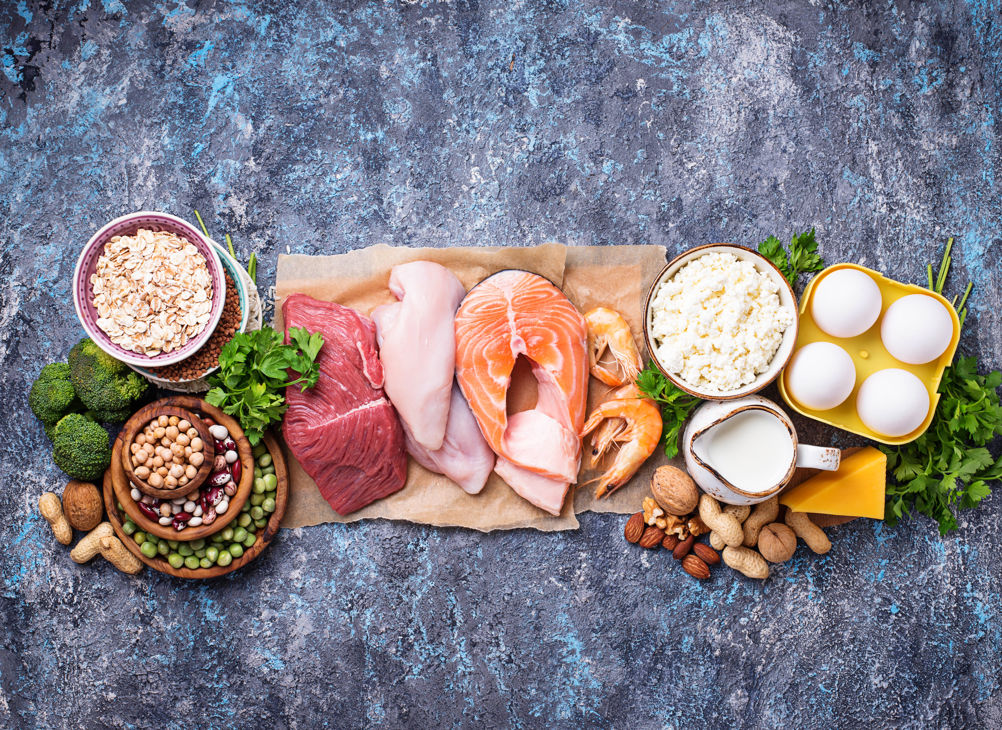I have been living with a permanent stoma since September 2019, and I promise, it doesn’t mean compromising on nutrition. In fact, it is an opportunity to embrace a mindful and nourishing approach to eating. Whether you are adapting to life post-surgery or seeking ways to enhance your well-being, this guide is tailored to help you savour nutritious foods that support both your health and the unique needs of living with a stoma.
Prioritise digestible foods
Opt for easily digestible foods to minimise the risk of a blockage. Fruits with lots of seeds and pulp like strawberries can be tricky. As such, it is best to blend up seeds, strain them and use them as a coulis on yoghurt or in a smoothie. Cooked vegetables, well-cooked grains and lean proteins are also excellent choices.
You can also experiment with steaming or roasting to enhance flavour without compromising digestibility. If you love certain vegetables that may cause a blockage, try blitzing them up into delicious pasta sauces or making dips
or soups.
Embrace fibre gradually
Everyone always bangs on about how ‘good fibre is for you’, but if you are living with a stoma/ostomy, fibre sometimes has to be limited or eaten in moderation. If I am having high-fibrous foods like lettuce, I always make sure to have a carb with it like bread, potatoes or pasta.
Gradually introduce fibre-rich foods to your diet, as sudden increases can lead to liquid output, gas and bloating. Some of my favourite soluble fibre sources are oats, bananas and sweet potatoes, which are gentler on the digestive system.
Stay hydrated
Hydration is so vital if you’re living with a stoma/ostomy, as our bodies don’t absorb water like regular digestive systems. Aim for at least eight cups of water a day to prevent dehydration, as it can affect the consistency of output. Carry a reusable water bottle to ensure you stay hydrated, especially in warmer climates or during physical activities. I always carry a 2.5 L bottle with sugar-free squash (weak if you like) and drink it throughout the day. If I am sweating more from exercise or in a hot country, I also make sure to have rehydration salts too. Adding a little sea salt to foods can help to retain water too.
Portion control for comfort
I’ve always loved food and had a big appetite (especially when I was on steroids), but since having a stoma, I can’t manage big meals. Eating smaller, more frequent meals throughout the day can help manage stoma output and prevent discomfort. Try not to leave big gaps between eating as this can cause gas and discomfort. Focus on portion control to allow your digestive system to process foods more efficiently.
Monitor trigger foods
After you have stoma surgery, it is important to take it slowly with your eating. Keep foods fairly plain to start with and then slowly introduce new ones.
Identify and monitor foods that may trigger changes in stoma output or cause digestive discomfort. Common culprits include spicy foods, carbonated drinks, and high-fat meals. Keep a food journal to track your responses to different foods.

Explore protein
Protein is essential for tissue repair and overall health. Incorporate lean protein sources such as chicken, fish, tofu and eggs into your meals. Consider consulting a nutritionist for personalised protein recommendations. I am happy to discuss this more with you, you can get in touch with me here.
Be mindful of gas-producing foods
Certain foods can contribute to gas production. Although post stoma surgery I found my body can tolerate a lot more food than before. However, take it easy and keep a record. Limiting gas-producing foods like beans, cabbage and carbonated beverages can help minimise the risk of bloating and discomfort.
Consider nutrient supplements
I’ve always been a fan of supplements, but it is important to take ones that are high-quality and stoma-friendly. The best supplements to take when living with a stoma/ostomy are omegas, vitamin D and magnesium.
Eating nutritiously with a stoma is about finding a balance that suits your individual needs. By prioritising digestible foods, staying hydrated and being mindful of your body’s responses, you can enjoy healthy meals that support your overall IBD health and stoma
well-being.
Beth Coldrick is a mindset and nutrition coach
www.theibdcoach.co.uk


